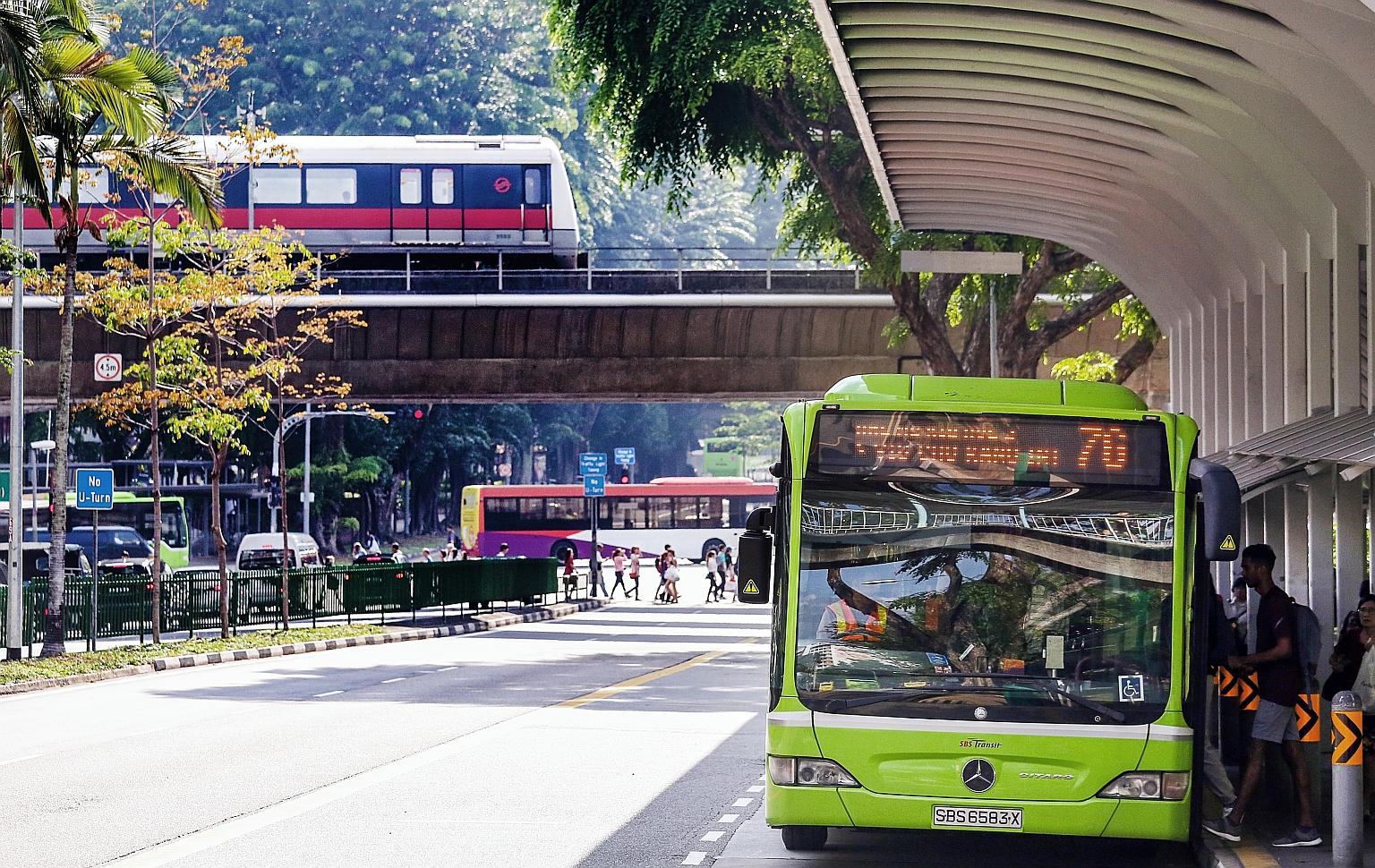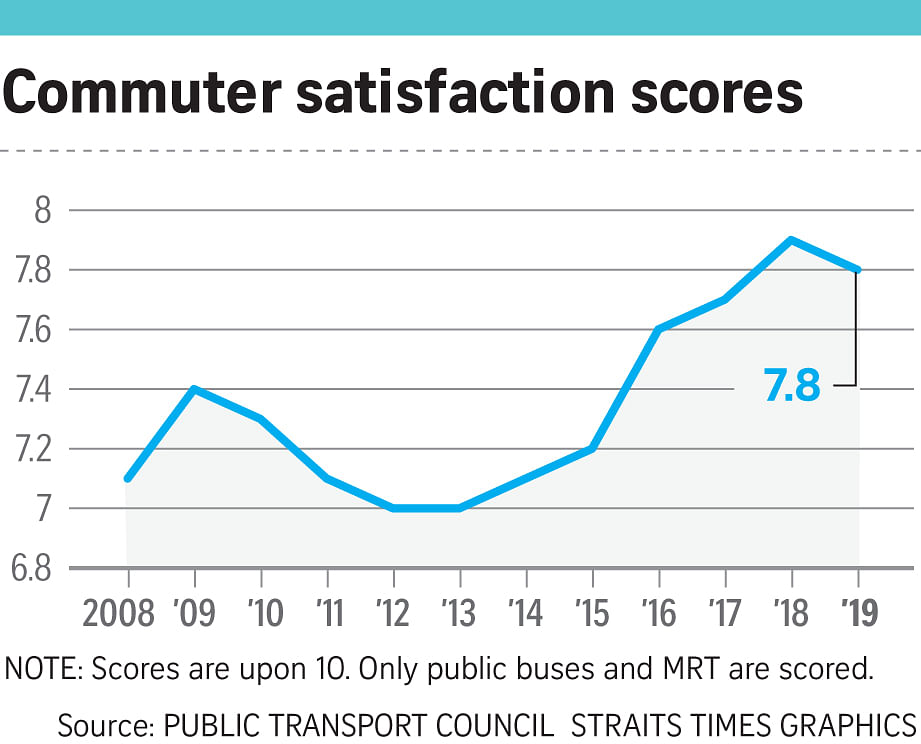Satisfaction with MRT, buses falls slightly
Survey finds travel times, customer service, accessibility among factors for lower score
Sign up now: Get ST's newsletters delivered to your inbox

The overall satisfaction level for buses remained flat at 7.9, but commuters were less happy about waiting times and accessibility to bus stops and interchanges. Train satisfaction fell from 7.9 to 7.7. While commuters were happier with reliability, waiting times and comfort, they were less pleased about practically every other aspect of travelling by MRT. LIANHE ZAOBAO FILE PHOTO
Public transport satisfaction fell slightly last year, pulled down by factors such as travel times, accessibility, service information and customer service.
Overall satisfaction registered a score of 7.8, compared with 7.9 in 2018 and 7.7 in 2017, noted the Public Transport Council, which commissions the yearly poll of nearly 5,000 commuters.
Those surveyed were generally most satisfied with waiting times (a 7.9 score, up from 7.5 in 2018), as more trains joined the network.
Satisfaction with rail reliability improved from 7.8 to 7.9, reflecting the outcome of a tax-funded renewal of the North-South and East-West MRT lines that will cost more than $2.5 billion when fully completed by 2024.
But travel time, accessibility, service information and customer service fared lower than in the 2018 satisfaction score card. And despite efforts to subject train commuters to random security screening, safety and security dipped substantially from a score of 8.3 to 7.8.
The overall satisfaction level for buses remained flat at 7.9, but commuters were less happy about waiting times and accessibility to bus stops and interchanges.
Train satisfaction fell from 7.9 to 7.7. While commuters were happier with reliability, waiting times and comfort, they were less pleased about practically every other aspect of travelling by MRT.
Service information, station accessibility, travel times, customer service and safety/security slipped.
Commuters have, for instance, pointed out that train speeds have largely been lower than what they were before 2011.
While the scorecard showed a statistical dip, the satisfaction level remained high in relation to levels of recent years. In 2015, for instance, the overall score was 7.2.
Transport Minister Khaw Boon Wan pointed out on Facebook yesterday that the MRT network had "achieved the audacious one million MKBF target" for reliability.

MKBF stands for mean kilometres before failure, and is a widely used measure of reliability. Last year, the MRT network clocked 1.32 million MKBF - up sharply from 58,000 MKBF in 2011.
Mr Khaw also noted that ridership hit an average of 7.69 million trips a day last year - 2 per cent higher than the previous record of 7.54 million in 2018. "This is a 25 per cent jump from the ridership in 2012, before we opened the Downtown Line and launched our Bus Service Enhancement Programme," he wrote.
Commuters interviewed offered their views on the latest survey.
Marketing manager Eugene Mok, 34, said: "While trains have become more reliable, travel times have been observed to be slower. During peak hours, the issue of having to wait for a second or third train before boarding has continued to surface despite the increased frequency."
He said improvements in areas other than reliability "will need to be more noticeable... for overall satisfaction levels to increase, especially given that fares have been raised and higher expectations will follow".
Engineer Ng Guan Hong, 50, said: "No doubt we have seen improvement, but only after we have spent lots of taxpayers' money."


